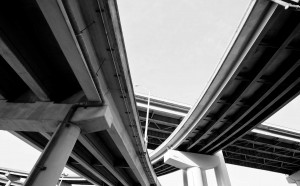[ad_1]
Please use the menu below to navigate to any article section:
All investors know that location is one of the most critical components of any successful property investment.
When long-term capital growth is the sought-after reward at the end of the real estate rainbow (as it always should be), it is vital that you not only find the best possible property but the best possible position.
In fact, I’d say that around 80% of your property’s performance is dependant on its location.
Now by location, I don’t just mean finding the right suburb, in the right area, near the right capital city…
I mean the exact aspect of the property within that ideal suburb; one that consistently delivers strong, long-term capital growth that outperforms the averages.
One of the biggest mistakes I see investors and homebuyers make is to compromise on the position in favour of a “bargain”.
I’ve heard numerous stories from investors who have been talked into purchasing a property because it ticked all of the right boxes but came at a cheaper price because it was situated on the main road.
The agent who sold them the property has convinced them to make some concessions for the fact that it’s on the main road by saying things like…
“It’s at the rear of the block of apartments, so you can hardly notice any traffic noise.”
Or, “Look at the size of the block of land the house sits on.”
Or they said something like: “You won’t find another period home in this neighbourhood for such a great price and it will always hold its value because of the original features and land component.”
Don’t get me wrong, all of us want a good deal when it comes to buying an investment or even our own home.
And for some new Australians, the concept of living on the main road is more than reasonable.
Consider countries that have enormous populations, in excess of three times the total number of Aussie residents, yet lack the wide-open spaces that we enjoy here.
Many people from these countries have little choice but to live on the main road.
But they also have properties that are purpose-built to allow for traffic noise, with things like double glazing and solid stone walls.
In Australia though, we live according to our traditionally hotter climate and as such, have houses built more for good ventilation than noise suppression.
Additionally, most of us enjoy the great outdoors and the customary ritual of a summer “barby”; and we’d rather not have to listen to passing traffic while enjoying the company of friends and family.
But excessive noise is not the only reason I warn clients away from properties on main roads; there are plenty of convincing arguments why main roads are definitely a real estate no-no, particularly for investment.
1. The risk of over-development
One of the policies of our state governments is to control our booming population and curb potential urban sprawl is designed to concentrate development around major transport hubs; this includes existing and new main arterials.
This means that if you buy on the main arterial, you face the very real possibility of one day becoming surrounded by new developments.
Of course, as the population in these areas starts to boom, businesses move in to cater to the growing number of residents and you can quickly find yourself living in the midst of hotels, petrol stations and supermarkets.
Remember, having these types of amenities nearby is a great way to generate long-term growth from an investment, but having them right on your doorstep (along with some of the less desirable social elements they can attract), is guaranteed to see the value of your property decline.
2. Minimising your prospective re-sale and rental market
While we always preach to clients that you should hold property for the long term and never sell, restricting your potential re-sale market will have a detrimental effect on your investment’s value.
Remember, with 70% of all Australians buying or owning their own home, it is ultimately home buyers who determine prices.
As the saying goes, a property is only worth what a buyer is willing to pay.
Many home buyers and tenants have very specific requirements, particularly if they have children or pets.
Generally at the top of the list for families is a home in a quiet position, as busy streets with heavy traffic pose not only noise issues, but more concerning – obvious safety risks.
Then there’s the frustration your tenants will encounter trying to leave the property to get to work in the mornings.
Ever tried reversing out of a driveway into the chaos of peak hour commuters?
3. Marketing issues
Even if you wouldn’t mind living on the main road, most people would.
So it will always be hard to sell your property and it will frequently take much longer to sell it.
Agents hate listing main road properties because they find them hard to advertise and loathe having to explain to buyers why this main road property is different and they really need to inspect it.
Additionally, most open for inspections are late on a Saturday afternoon or on a Sunday when the traffic has eased.
However, if it is an inspection by appointment only, agents might restrict available times to the middle of the day in order to avoid peak hours, which makes it inconvenient for potential buyers or tenants to attend and can again restrict your market.
Sure people live on main roads – people live everywhere. And in boom times when there are more buyers than properties for sale, even secondary properties sell.
But during the slower times in the property cycle (and there are as many of these as the boom times) properties in secondary locations just don’t sell, or if they do their vendors have to give them away at a bargain.
And it’s much the same with tenants – you’ll have a wider selection of potential tenants willing to pay you a higher rent if you buy off the main road.
4. Higher vacancy rates
While a property manager might be able to “sell” property on the main road to some tenants, historical data suggests that it doesn’t take long for them to tire of the incessant issues posed by the property’s position and decide to move on as soon as their lease expires.
Generally, main road dwellings have a higher tenant and owner turnover than properties in quieter streets.
So even if you intend to hold your investment for the long term, you could find yourself facing extended vacancy periods and therefore substantial losses.
There is no question that buying on the main road can greatly reduce your buyer and tenant market and not only affect your potential long-term gains, but also your rental return.
Sure, properties on main roads might occasionally look good on paper and in a booming market they can even generate good prices as overly eager buyers want to snap up a property at a seemingly “great price”.
But when markets cool, as they are at present in many parts of Australia, so too does interest in main road real estate as there is a flight to quality.
Remember, property investing is all about consistent, long-term growth and you just won’t achieve that unless you buy in the best possible position.
While you can improve your property through renovations, or you can increase its return through professional Property Management, there’s one thing you can’t change… and that’s the location.
ALSO READ: 5 things property investors can learn from marathon runners
[ad_2]
Source link






